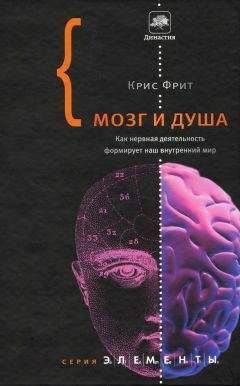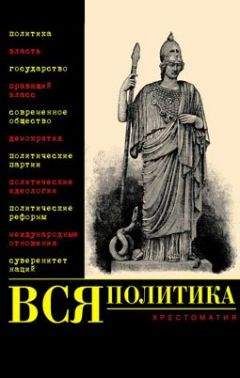Should conditions such as a nation’s numerical plentitude, wide
extension, or geographic isolation permit independence from
the primary pathocratic nation, more measured factors and the
society of normal people will thus find some way of influenc-
ing the governmental system, taking advantage of the opportu-
nities afforded by the dissimulative phase. In the presence of
advantageous conditions and skillful outside assistance, this
could lead to progressive depathologization of the system.
General Considerations
The path to comprehending the true contents of the phe-
nomenon and its internal causality can only be opened by over-
coming natural reflexes and emotions, and the tendency toward
moralizing interpretations, followed by assembling data elabo-
rated in difficult everyday clinical work and subsequent gener-
alizations in the form of theoretical ponerology. Such compre-
hension naturally also encompasses those who would create
such an inhuman system.
222
PATHOCRACY
The problem of biological determination of the behavior of
deviants is thus sketched in all its expressiveness, showing
primarily how their capacity for moral judgments and their
field of behavior selection is narrowed well below the levels
available to a normal person. The attitude of understanding
even one’s enemies is the most difficult for us humans. Moral
condemnation proves to be an obstacle along the path toward
curing the world of this disease.
A result of the character of the phenomenon described in
this chapter is that no attempt to understand its nature or to
track its internal causative links and diachronic transformations
would be possible if all we had at our disposal were the natural
language of psychological, social, and moral concepts even in
that partially perfected form used by the social sciences. It
would also be impossible to predict subsequent phases in the
development of this phenomenon or to distinguish its weak
times and weak spots for purposes of counteraction.
Elaboration of an appropriate and sufficiently comprehen-
sive conceptual language was thus indicated as essential; it
required more time and effort than studying the phenomenon
itself. It has therefore become necessary to bore readers some-
what by introducing this conceptual language in a manner both
parsimonious and adequate, which would at the same time be
comprehensible to those readers not trained in the area of psy-
chopathology.
Anyone who wants to repair television sets instead of mak-
ing them worse must first familiarize himself with electronics,
which is also beyond the ambit of our natural conceptual lan-
guage. However, upon learning to understand this macrosocial
phenomenon in the corresponding reference system, a scientist
stands in wonder as though before the open tomb of Tutank-
hamen for a while before he is able to understand the living
laws of the phenomenon with ever greater speed and skill,
thereupon complementing this comprehension with a huge
array of detailed data.
The first conclusion which suggested itself soon after meet-
ing with the “professor” introduced at the beginning of this
volume, was that the phenomenon’s development is limited by
nature in terms of the participation of susceptible individuals
POLITICAL PONEROLOGY
223
within a given society. The initial evaluation of approximately
6% amenable individuals proved realistic; progressively col-
lected detailed statistical data assembled later were unable to
refute it. This value varies from country to country in the mag-
nitude of about one percentage point upward or downward.
Quantitatively speaking, this number is broken down into 0.6%
essential psychopaths, i.e. about 1/10 of this 6 %. However,
this anomaly plays a disproportionate role compared to the
numbers by saturating the phenomenon as a whole with its own
quality of thought and experience.
Other psychopathies, known as asthenic, schizoidal,
anankastic, hysterical, et al., definitely play second fiddle al-
though, in sum, they are much more numerous. Relatively
primitive skirtoidal individuals become fellow-travelers,
goaded by their lust for life, but their activities are limited by
considerations of their own advantage. In non-semitic nations,
schizoidia are somewhat more numerous than essential psy-
chopaths; although highly active in the early phases of the
genesis of the phenomenon, they betray an attraction to pathoc-
racy as well as the rational distance of efficient thinking; Thus
they are torn between such a system and the society of normal
people.
Persons less distinctly inclined in the pathocratic direction
include those affected by some states caused by the toxic ac-
tivities of certain substances such as ether, carbon monoxide,104
and possibly some endotoxins, under the condition that this
occurred in childhood.105
104 Considering the fact that the last attempt to impose a Pathocracy on the
global scale, Naziism, campaigned vigorously against smoking, and the
current U.S. pathocracy is also behind the global attempt to “stamp out smok-
ing” as a “health hazard”, all the while generously distributing depleted
uranium, a far more dangerous substance, into the environment, as well as
refusing to join any environmental preservation activities, one has to wonder
if there is not some connection here? If carbon monoxide, one of the primary
substances inhaled when smoking, actually produces a state or condition that
is a defense against the mental predations of pathocrats, no wonder they wish
to eliminate it. That also suggests that all of the so-called “data” supporting
the anti-smoking campaign is possibly “cooked”. [Editor’s note.]
105 i.e., So-called “second hand smoke”. This actually suggests that second-
hand smoke can have highly beneficial effects on children specifically in
terms of immunizing them against psychopathic take-over! [Editor’s note.]
224
PATHOCRACY
Among individuals carrying other indications of brain-tissue
damage, only two described types have a somewhat measured
inclination, namely frontal and paranoidal characteropaths. In
the case of frontal characteropathy, this is principally the result
of an incapacity for self-critical reflection and an incapacity for
the abandonment of a dead-end street into which one has
thoughtlessly stumbled. Paranoidal individuals expect uncriti-
cal support within such a system. In general however, the carri-
ers of various kinds of brain-tissue damage lean clearly toward
the society of normal people, and as a result of their psycho-
logical problems, ultimately suffer even more than healthy
people under pathocracy.
It also turned out that the carriers of some physiological
anomalies known to physicians and sometimes to psycholo-
gists, and which are primarily hereditary in nature, manifest
split tendencies similar to schizoids. In a similar manner, peo-
ple whom nature has unfortunately saddled with a short life and
an early cancer-related death frequently indicate a characteris-
tic and irrational attraction for this phenomenon. These latter
observations were decisive in my agreeing to call the phe-
nomenon by this name, which had originally struck me as se-
mantically overly loose. An individual’s decreased resistance
to the effects of pathocracy and his attraction to this phenome-
non appear to be a holistic response of person’s organism, not
merely of his psychological makeup alone.
Approximately 6% of the population constitutes the active
structure of the new rulership, which carries its own peculiar
consciousness of its own goals. Twice as many people consti-
tute a second group: those who have managed to warp their
personalities to meet the demands of the new reality. This leads
to attitudes which can already be interpreted within the catego-
ries of the natural psychological world view, i.e. the errors we
are committing are much smaller. It is of course not possible to
draw an exact boundary between these groups; the separation
adduced here is merely descriptive in nature.
This second group consists of individuals who are, on the
average, weaker, more sickly, and less vital. The frequency of
known mental diseases in this group is at twice the rate of the
national average. We can thus assume that the genesis of their
POLITICAL PONEROLOGY
225
submissive attitude toward the regime, their greater susceptibil-
ity to pathological effects, and their skittish opportunism in-
cludes various relatively impalpable anomalies. We observe
not only physiological anomalies, but also the kinds described
above at the lowest intensity, with the exception of essential
psychopathy.
The 6% group constitute the new nobility; the 12% group
gradually forms the new bourgeoisie, whose economic situa-
tion is the most advantageous. Adapting to the new conditions,
not without conflicts of conscience, transforms this latter group
into both dodgers and, simultaneously, intermediaries between
the oppositional society and the active ponerological group,
whom they can talk to in the appropriate language. They play
such a crucial role within this system that both sides must take
them into account. Since their technical capacities and skills
are better than those of the active pathocratic group, they as-
sume various managerial positions. Normal people see them as
persons they can approach, generally without being subjected
to pathological arrogance.
So it is that only 18% of the country’s population is in favor
of the new system of government; but concerning the layer we
have called the bourgeoisie, we may even be doubtful of the
sincerity of their attitudes. This is the situation in the author’s
homeland. This proportion can be variously estimated in other
countries, from 15% in Hungary to 21% in Bulgaria, but it is
never more than a relatively small minority.
The great majority of the population forms the society of
normal people, gradually creating an informal communications
network. It behooves us to wonder why these people reject the
advantages conformity affords, consciously preferring the op-
posing role: poverty, harassment, and curtailment of human
freedoms. What ideals motivate them? Is this merely a kind of
romanticism representing ties to tradition and religion? Still, so
many people with a religious upbringing change their world
view to that of the Pathocrats very quickly. The next chapter is
dedicated to this question.
For the moment, let us limit ourselves to stating that a per-
son with a normal human instinctive substratum, good basic
intelligence, and full faculties of critical thought would have a
226
PATHOCRACY
difficult time accepting such a compromise; it would devastate
his personality and engender neurosis. At the same time, such a
system easily distinguishes and separates him from its own
kind regardless of his sporadic hesitations. No method of
propaganda can change the nature of this macrosocial phe-
nomenon or the nature of a normal human being. They remain
foreign to each other.
The above-described subdivision into three sections should
not be identified with membership in any party, which is offi-
cially ideological but in fact pathocratic. Such a system con-
tains many normal people forced to join such a party by various
circumstances, and who must pretend as best they can to repre-
sent said party’s more reasonable adherents. After a year or two
of obtusely executed instructions, they start becoming inde-
pendent and reestablishing their severed ties to society. Their
former friends begin to get the gist of their double game. This
is the situation of large numbers of the adherents of the former
ideology, which is now fulfilling its changed function. They are
also the first to protest that this system does not truly represent
their old political beliefs. We must also remember that spe-
cially trusted people, whose loyalty to the pathocracy is a fore-
gone conclusion due to their psychological nature and the
functions they perform, have no need to belong to the party;
they stand above it.
After a typical pathocratic structure has been formed, the
population is effectively divided – polarized - according to
completely different lines from what someone raised outside
the purview of this phenomenon might imagine, and in a man-
ner whose actual conditions are also impossible to comprehend
for someone lacking essential specialized training. However, an
intuitive sense for these causes gradually forms among the
majority of society in a country affected by the phenomenon. A
person raised in a normal man’s system is accustomed since
childhood to seeing economic and ideological problems in the
foreground, possibly also the results of social injustice. Such
concepts have proved illusory and ineffective in a most tragic
manner: the macrosocial phenomenon has its own properties
and laws which can only be studied and comprehended within
the appropriate categories.
POLITICAL PONEROLOGY
227
However, in leaving behind our old natural method of com-
prehension and learning to track the internal causality of the
phenomenon, we marvel at the surprising exactness with which




